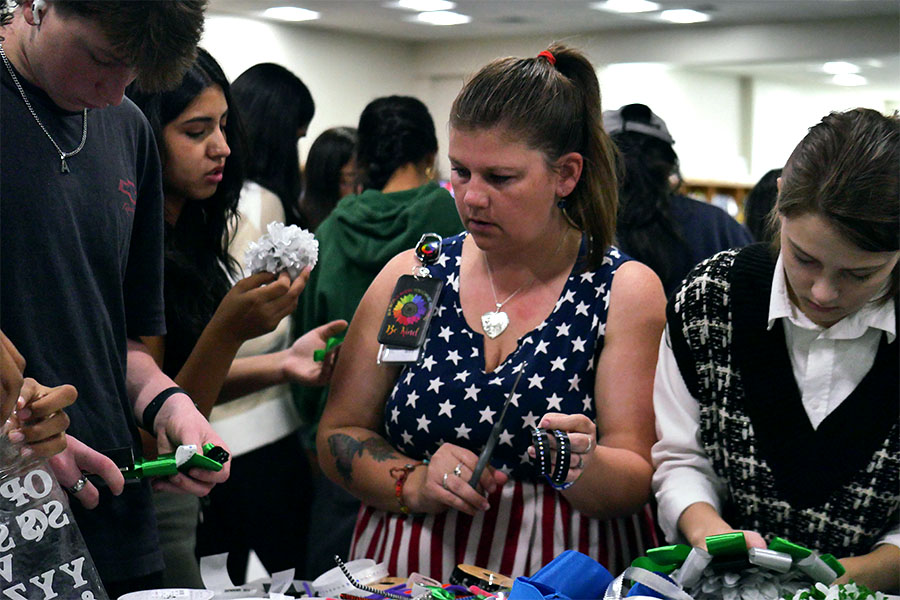In the Information Age, music trends change more rapidly than ever before. Thanks to the convenience and escalation of the Internet, it’s become easier for local artists and bands to gain exposure, and in countries and places they otherwise never might have reached. Just five years ago, MySpace was still a formidable outlet for media interaction and linkage between fans and aspiring musicians. CD sales were still a heavy proportion of the Nielsen SoundScan. However, 2007 seemed to be a cataclysmic year for music. The Internet grew in everyday importance, digitized albums were gaining popularity through applications like iTunes, and promotional ads were shifting from paper flyers to webpage sidebars. One-hit wonder Soulja Boy Tell ‘Em saw his first single go #1 across the country with a matching dance to further the epidemic.
Nowadays, in a burgeoning young 2012, the Internet has since blossomed with a smoldering mass of unknown bands with all degrees of obscurity, the latest pop music darlings, and everything else imaginable. Websites like Bandcamp and SoundCloud have shortened the gap between curious music fans and anyone who can create music and post it online. Not only that, with DIY blogs like Tumblr and Blogspot, countless music blogs have spawned over the years, showcasing new and established artists of the bloggers’ own interest. Pandora Radio is also becoming a popular way to discover new and unheard music from your chosen artists and genres.
Of course, with the innovation and freedom of the Internet comes the flipside consequence; illegal downloading, torrenting and otherwise acquiring unpaid music stacking up in the everyday citizen’s iTunes library creates the void of lost money for record labels, individual artists and bands who worked hard for the royalties they deserve. On the other side of the coin, artists often peddle their recordings for free online, offering up download links on their Bandcamp or website in order to get new ears to hear their music and hopefully convert them to fans who would be willing to shell out some cash for later music by the artists. This kind of promotion has been rising in an era where most of us prefer free stuff rather than taking a chance. Indie music, once a term relegated to college power-punk bands and post-rock pop outfits, has strangely become “mainstream,” with the gap between promising independent artists and the radio and news shrinking day by day. The music scenes previously exclusive to those “in-the-know” and the aggravatingly ‘hipster’ are opening up more and more.
Music is never illustrated by one single factor or set of genres. No longer are there base mediums such as “Rock,” “Hip Hop,” “Pop,” or “Electronic.” Infinite blends and cohesions between genres have been boldly created and popularized. In the age of the Internet which furnishes a generation adapted to technology since birth, it has become almost necessity for any artists or bands with aspirations to succeed to use the Internet as a springboard. This is certainly not to say that promoting yourself locally and doing shows would hurt. However, the importance of such a tangible and instantaneous connection to potential fans worldwide is undeniable, and the benefits are clear as crystal.







![As her hair blows in the wind, senior Brianna Grandow runs the varsity girls 5K at the cross country district meet last Thursday. Grandow finished fourth in the event and led the varsity girls to regionals with a third place placement as a team. “I’m very excited [to go to regionals],” Grandow said. “I’m excited to race in Corpus Christi, and we get to go to the beach, so that’s really awesome.” Photo by Addison Bruce](https://cphswolfpack.com/wp-content/uploads/2025/10/brianna.jpg)


![Broadcast, yearbook and newspaper combined for 66 Interscholastic League Press Conference awards this year. Yearbook won 43, newspaper won 14 and broadcast took home nine. “I think [the ILPC awards] are a great way to give the kids some acknowledgement for all of their hard work,” newspaper and yearbook adviser Paige Hert said. “They typically spend the year covering everyone else’s big moments, so it’s really cool for them to be celebrated so many times and in so many different ways.”](https://cphswolfpack.com/wp-content/uploads/2025/05/edited-ILPC.jpg)





![Sitting with her friend senior Sohpia Struve at last year’s Austin City Limits Festival, senior Ava Zuniga poses for a picture under a pavilion. They are frequent attendees at ACL, an annual music festival at Zilker Park. “I would recommend seeing a bunch of people,” Zuniga said. “This past year, we camped out for Chappell [Roan] for a really long time. I think the whole point of ACL, [which] is a lot of fun, is that you can go see so many different people, even if you don’t know them. So by camping by one person, it really limits yourself from being able to go see a bunch of people.” Photo courtesy of Ava Zuniga](https://cphswolfpack.com/wp-content/uploads/2025/10/EE9E9484-FE6F-4AA0-B5F5-0C177AB32841-1200x857.jpeg)
![Looking down at his racket, junior Hasun Nguyen hits the green tennis ball. Hasun has played tennis since he was 9 years old, and he is on the varsity team. "I feel like it’s not really appreciated in America as much, but [tennis] is a really competitive and mentally challenging sport,” Nguyen said. “I’m really level-headed and can keep my cool during a match, and that helps me play a bit better under pressure.” Photo by Kyra Cox](https://cphswolfpack.com/wp-content/uploads/2025/09/hasun.jpg)

![Bringing her arm over her head and taking a quick breath, junior Lauren Lucas swims the final laps of the 500 freestyle at the regionals swimming competition on date. Lucas broke the school’s 18-year-old record for the 500 freestyle at regionals and again at state with a time of 4:58.63. “I’d had my eye on that 500 record since my freshman year, so I was really excited to see if I could get it at regionals or districts,” Lucas said. “ State is always a really fun experience and medaling for the first time was really great. It was a very very tight race, [so] I was a bit surprised [that I medaled]. [There were] a lot of fast girls at the meet in general, [and] it was like a dogfight back and forth, back and forth.” Photo by Kaydence Wilkinson](https://cphswolfpack.com/wp-content/uploads/2025/03/Kaydence-2.7-23-edit-2.jpg)
![As the support team sits and poses for a photo in the cafeteria with the counseling team they eagerly wait to start their day. "We [all] seem to be a team, I get up every day and there's days where I don't want to go to work today, but I'm thankful that I have a job and I'm blessed to have what I have," Christopherson said. Photo Courtesy of Julie Weltens.](https://cphswolfpack.com/wp-content/uploads/2025/01/AF9E8470-10D7-4C91-BF28-EC8F86BAB66C-1200x852.jpeg)
![Jumping off the ground, senior linebacker Bennett Patton snatches the ball out of the air for an interception at Thursday’s game against Chaparral. Patton had two interceptions in the 56-14 victory, tying the school record for interceptions in a game. “I was just playing the game,” Patton said. “[I’m] going to go into next week, forget about it and stay humble.” Photo by Harper Chapman](https://cphswolfpack.com/wp-content/uploads/2025/09/bennett-interception.jpg)













